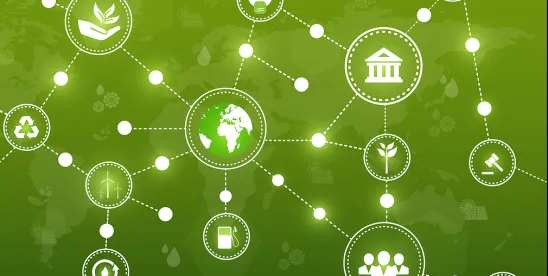AUSTRALIAN UPDATE
Australia and EU Enter Into Critical and Strategic Minerals Partnership
On 28 May 2024, Australia and the European Union (EU) signed a Memorandum of Understanding (MOU) for a bilateral partnership to cooperate on sustainable critical and strategic minerals.
Under the MOU, the EU will diversify its supplies of materials necessary for the clean energy and digital transitions, whilst contributing to the development of Australia’s domestic critical minerals sector.
The MOU addresses the entire life cycle for critical and strategic minerals projects including exploration, extraction, processing, refining, recycling and processing of mining waste. The partnership will also explore cooperation in countries where Australia and the EU have mutual interests.
The stated purpose of the MOU is to enhance cooperation between Australia and the EU in the following areas:
- Networking, joint venture projects, creation of new business models and promotion and facilitation of trade and investment linkages, to increase the resilience of sustainable critical mineral supply chains;
- Research and innovation including cooperation on minerals knowledge and the minimisation of environmental and climate footprints; and
- The promotion of high environmental, social and governance (ESG) standards and practices with the aim of improved policy alignment between the jurisdictions.
In the next six months, Australia and the EU will develop a roadmap with concrete action items and obligations on each country to implement the MOU.
As previously reported by K&L Gates, the MOU follows the joint statement between Australia and Canada expressing an intent to work together to improve transparency in critical minerals supply chains and to promote recognition of strong ESG standards in critical minerals markets.
The MOU is another pillar of Australia’s Critical Mineral Strategy 2023-2030 (CM Strategy) (as previously reported by K&L Gates). The CM Strategy is designed to, amongst other things, create diverse, resilient and sustainable supply chains through strong and secure international partnerships.
MasterChef Grilled Over Gas Sponsorship
Network Ten has been grilled by a Senate inquiry (Inquiry) into greenwashing and refused to disclose the value of its gas sponsorship deal with Australian Gas Network (AGN). Various environmental groups have labelled the deal as “cynical greenwashing” and have also lodged a complaint with the Australian Competition and Consumer Commission.
Climate group CommsDeclare founder Belinda Noble said that it believed that “hundreds of thousands” of MasterChef fans were being deceived into thinking that the gas used in the program was good for the planet.
During the prime-time TV slot, AGN promoted the benefits of “renewable” gas cooking, including a barbecue powered by AGN-supplied hydrogen and open flame cooktops powered by biomethane.
Biomethane functions the same as traditional natural gas but is produced using energy from waste products. AGN-supplied hydrogen is produced by using natural gas (which is a fossil fuel). Carbon offsets may be purchased so that its hydrogen can be considered to be carbon neutral.
However, AGN contends that biomethane and hydrogen are only available in certain limited test areas and are not “commercially viable and not available in ordinary Australian homes”.
The owners of AGN, the Australian Gas Infrastructure Group (AGIG), told the Inquiry that they want the sponsorship to increase the profile of the biomethane and hydrogen alternatives for the gas industry.
AGIG and Network Ten told the Inquiry that viewers were not led to believe that the renewable gas in the MasterChef kitchen was available for their homes.
Network Ten’s Head of Government and Regulatory Affairs James Boyce told the Inquiry that there are no recommendations or suggestions that the TV program’s audience should replicate or can replicate what could be done by contestants in professional kitchens on a TV show.
Mr Boyce also said that there were no plans to change the MasterChef kitchen to electric induction cooking, which is used in the franchise’s kitchens overseas.
Sweeping Changes to Environmental Laws
As part of the Australian Government’s Nature Positive Plan, it is reforming environmental laws including the Environment Protection and Biodiversity Conservation Act 1999 (Cth) (EPBC Act).
These reforms include the following:
EPA Bill
The Nature Positive (Environment Protection Australia) Bill 2024 (EPA Bill), which proposes to establish a new statutory authority – Environment Protection Australia (EPA) – which will have a mandate to administer Australia’s environmental protection laws to better protect nature, while supporting sustainable development including having stronger powers to ensure effective compliance and enforcement. The EPA’s primary role is to assist the chief executive officer (CEO) of the EPA in performing its functions. The EPA Bill proposes that the CEO will be able to establish and maintain public registers of registrable decisions and other prescribed matters, request information and disclose that information to commonwealth, state or territory agencies or for law enforcement purposes. Under the EPA Bill, the CEO must provide an annual report to the Minister that will be published on the EPA website.
Amendment Bill
The Nature Positive (Environment Law Amendments and Transitional Provisions) Bill 2024 (Amendment Bill), which proposes to amend the EPBC Act so that the CEO of the EPA will assume various enforcement and evidentiary powers, and the power to issue permits under Chapter 5 of the EPBC Act. Under the Amendment Bill, the EPA is also proposed to have the power to audit businesses’ compliance with environmental laws and issue stop-work orders on projects suspected of breaking such laws.
EIA Bill
The Nature Positive (Environment Information Australia) Bill 2024 (EIA Bill), which proposes to establish another agency – Environment Information Australia (EIA) – to provide environmental data to the public and promote faster development decisions for businesses. Under the EIA Bill, EIA will also release "state of the environment" reports every two years instead of the current frequency of every five years.
Promotion of Sustainable Financing
On 14 May 2024, the Treasurer handed down the Federal Budget for 2024-25 (Budget).
The Budget invests AU$22.7 billion over the next decade to build a “Future Made in Australia”, which focuses on maximising the economic and industrial benefits of the move to net zero and securing Australia’s place in a changing global economic and strategic landscape.
Part of the Future Made in Australia plan is the promotion of sustainable financing.
The Australian Government (Government) will commit AU$17.3 million over four years beginning from 2024-25 to mobilise private sector investment in sustainable activities. This includes Australia’s sustainable finance taxonomy to the agriculture sector and developing a labelling regime for financial products marketed as sustainable. The AU$17.3 million over four years includes:
- AU$10 million (and AU$1.9 million per year ongoing) in additional funding for the Australian Securities and Investments Commission (ASIC) to undertake enforcement against greenwashing and sustainability-related misconduct;
- AU$5.3 million (and AU$1.2 million per year ongoing) for the Treasury, ASIC and the Australian Prudential Regulation Authority (APRA) to deliver the sustainable finance framework, including issuing green bonds, improving data and engaging in the development of international regulatory regimes;
- AU$1.6 million over two years from 2024-25 for ASIC and the Treasury to consult on the development of a retail investment product labelling regime; and
- AU$0.5 million in 2024-25 to continue development of Australia’s sustainable finance taxonomy including expanding its coverage to the agriculture sector.
The Government will also examine opportunities to improve data quality and provide AU$1.3 million to develop and issue guidance for best practice transition plans.
Funding will also be met through ASIC and APRA industry levies.
In response to the Government’s planned promotion of sustainable financing, Financial Services Council CEOBlake Briggs said “Australia’s investment community is key to the transition to a low-carbon economy and the federal budget recognises the importance of developing an internationally aligned regulatory regime and a clear investment product labelling framework”.
ASFI Opens First Round Consultation on Development of Australian Sustainable Finance Taxonomy
The Australian Sustainable Finance Institute (ASFI), in partnership with the Government, has released a public consultation paper to seek feedback on the development of an Australian finance taxonomy.
A sustainable finance taxonomy is a framework to classify economic activities and assets that positively contribute to key sustainability objectives. There are over 40 sustainable finance taxonomies in place or under development globally. The Australian taxonomy is intended to provide common, consistent, scientifically rigorous definitions for green and transition finance in Australia, helping to accelerate the allocation of capital towards sustainable activities to achieve Australia’s net zero ambitions.
This is the first of two rounds of public consultation. In this first round, ASFI is seeking feedback on the draft climate change migration criteria for the first three priority sectors under development:
- Electricity generation and supply;
- Minerals, mining and metals; and
- Construction and the built environment.
ASFI is also seeking feedback on the proposed headline ambitions, set out in the table below. Headline ambitions are the broad, longer-term goals that underpin a taxonomy’s environmental objectives and are designed to be considered holistically. They are not definitions or taxonomy-specific targets.
| Climate Change Mitigation Advance a 2050 net zero greenhouse gas emissions future in Australia and contribute to the Paris Agreement goal of keeping global temperature increases well below 2°C and seeking to limit temperature increases to 1.5°C based on credible, science-aligned scenarios. |
Climate Change Adaptation and Resilience In Australia, businesses, communities, landscapes and ecosystems have the capacity to resist, absorb, adapt to, transform and recover from current and projected impacts of climate change, both direct and indirect, in a timely and effective manner by 2050. |
Biodiversity and Ecosystem Protection By 2050, Australia’s biodiversity, soils and terrestrial and marine ecosystems are valued, conserved, restored and wisely used. The impacts of climate change, invasive species and human pressures are minimised, to enable a continued flow of ecosystem services based on the principle of equitable outcomes for diverse societal needs. |
| Sustainable Use and Protection of Water Resources Protect, enhance and restore the integrity, resilience, genetic diversity and connectivity of aquatic ecosystems at a catchment level by 2050 to enable a continued flow of aquatic ecosystem services based on the principle of equitable outcomes for diverse societal needs. |
Pollution Prevention and Control People and the environment enjoy the benefit of equivalent protection from air, water, soil, noise, light and heat pollution through the identification of pollution sources, sinks and pathways, the application of risk-based measures to prevent pollution and safely remediate contamination, and where possible eliminate all pollution sources in our lifetime. |
Circular Economy Achieve sustainable production and consumption patterns in Australia by transitioning from the current linear “take-make-waste” economic system to a more circular economy by 2030. |
Consistency with the taxonomy will initially be voluntary, however the Government will consider a legislative approach amongst the options for embedding the taxonomy within Australia’s regulatory architecture.
ASFI CEO Kristy Graham said in the consultation’s release statement that “a credible, internationally interoperable and useable Australian taxonomy will support the growth and credibility of sustainable finance and investment in Australia, and help ensure Australia remains an attractive destination for investment to enable the net zero transition”.
The consultation will run from 28 May 2024 to 30 June 2024 and will inform the next iteration of the draft taxonomy for public consultation in the fourth quarter of 2024. ASFI will also conduct rolling targeted consultations throughout 2024 with specific stakeholders including First Nations peoples and environmental nongovernmental organisations.
Federal Court Rules on Greenwashing Civil Penalty Action Against Active Super
On 5 June 2024, Justice O’Callaghan found that LGSS Pty Ltd as trustee of the superannuation fund known as Active Super (Active Super) made false or misleading representations and engaged in conduct liable to mislead the public in relation to investments made by Aware Super contrary to sections 12DB(1)(a) and 12DF(1) of the Australian Securities and Investments Commission Act 2001 (Cth).
This is the second successful greenwashing civil penalty action for ASIC following the Federal Court decision earlier this year.
During the relevant period, 1 February 2021 to 30 June 2023, ASIC alleged that Active Super made the following representations:
- It would not make or hold investments in companies that derive more than 10% of their revenue from gambling;
- It would not make or hold investments in companies that derive any revenue from tobacco;
- Following Russia’s invasion of Ukraine, it would divest its Russian investments and make or hold no further investments in Russia;
- It would not make or hold investments in companies that derive any revenue from oil tar sands projects; and
- It would not make or hold investments in companies that derive one-third or more of their revenue from coal mining.
ASIC alleged that these representations were false or misleading due to Active Super making or holding securities, directly and indirectly in each of these categories.
Active Super submitted that none of the representations were conveyed, made in trade or commerce, it did not engage in conduct contrary to the representations if made and in any event, the representations if made were as to future matters for which Active Super had a reasonable basis.
The Court rejected these submissions, finding that save for the exceptional examples below, the representations Active Super made on gambling, Russia, oil tar sands and coal mining were misleading and deceptive.
In relation to the representations made on tobacco, Justice O’Callaghan found he was unable to accept ASIC’s submissions with respect to the tobacco representations. In his view “the ordinary reasonable consumer would not regard an investment in a company that derived 1.5% and 11% of their revenue from supplying packaging to tobacco companies as being ‘a tobacco company’ or a company engaged in the manufacture or production of tobacco”.
Additionally, the Court accepted that Active Super’s “Sustainable and Responsible Investment Policy” conveyed:
- That it restricted investments in companies that derived 33.3% or more of their revenue from oil tar sands; and
- When read in context, that it may have indirect exposure to Russian investments through pooled funds.
ASIC continues to make an example of companies in the financial services industry with misleading marketing and greenwashing claims, with ASIC Deputy Chair Sarah Court stating, “ASIC took this case because it sends a strong message to companies making sustainable investment claims that they need to reflect their true position”.
The Court will consider the appropriate form of declaratory relief and the pecuniary penalty to be imposed for the conduct at a later date.
Introduction of Commonwealth Anti-Slavery Commissioner
On 28 May 2024, the Australian Commonwealth Parliament passed the Modern Slavery Amendment (Australian Anti-Slavery Commissioner) Bill 2023 (MSA-AASC Bill). The MSA-AASC Bill amends the Modern Slavery Act 2018 (Cth) (MSA) by establishing an independent Australian federal anti-slavery commissioner (Commissioner) within the Attorney General’s Department.
The functions and purposes of the Commissioner will include:
- Promoting compliance with the MSA;
- Supporting victims of modern slavery;
- Collecting, analysing, interpreting and disseminating information relating to modern slavery; and
- Providing advice to the Government in respect of modern slavery.
When first introducing the MSA-AASC Bill, the Attorney General, the Hon Mark Dreyfus KC MP, said that “the Commissioner will play a key role in helping to shape implementation of future modern slavery reforms, including those which may arise from the recent statutory review of the Modern Slavery Act 2018, which the Government is currently considering”.
In our view, the passing of the MSA-AASC Bill and establishment of the Commissioner’s office is a positive step towards improving compliance with the spirit and intent of the MSA and addressing modern slavery risks in Australia. No doubt the actions and efficacy of the Commissioner will be compared to the New South Wales Anti-Slavery Commissioner, who recently published the detailed and practical Guidance On Reasonable Steps to manage modern slavery risks.
THE VIEW FROM ABROAD
European Regulators Urge Stronger Supervision to Combat Greenwashing in Financial Sector
The European Supervisory Authorities (ESAs) have recently published reports which scrutinise greenwashing in the financial sector (access the Final Reports here). The ESAs call for stronger and more consistent supervision to ensure financial market players are providing accurate sustainability information. This speaks to the larger issue of ensuring the market is not mislead by false or exaggerated sustainability claims as both retail and institutional investors increasingly include sustainability considerations as part of their investment decisions.
A common thread between each of these reports is a call for global cooperation, namely the development of “interoperable standards for sustainability disclosures”. This call for global cooperation is particularly relevant as the business operations of financial market participants span multiple jurisdictions. Thus, for effective supervision to occur, it is in the interests of regulators to communicate, share knowledge and develop common guidelines.
US Unveils Policy to Boost Carbon Offset Market Integrity
The use of carbon credits as an effective tool for mitigating climate change has been limited by the reliability and integrity of the carbon offset market. To address this, the current United States (US) administration has recently published policy guidelines aimed at bolstering transparency and reducing distortions in the carbon offset market (access the US White House Fact Sheet here). In practical terms, this involves standardising the verification and certification processes for carbon credits through engaging third parties to authenticate the actual reductions in greenhouse gas emissions provided by carbon offset projects. Crucially, this policy seeks to prevent the double counting of emissions reductions.
The immediate effect of this policy update is to address the concerns of stakeholders who have previously been reluctant to participate in the carbon offset market. The current US administration is not alone in its efforts to enhance the integrity of carbon markets. Various other jurisdictions are seeking to do the same – for example Malaysia who will host their first auction of local carbon credits on 25 July 2024. The broader effect of this policy update is that it may serve as a model for new internationally consistent standards in carbon offset trading, promoting a deeper and more liquid global market for this important tool for greenhouse gas minimisation.









 />i
/>i
